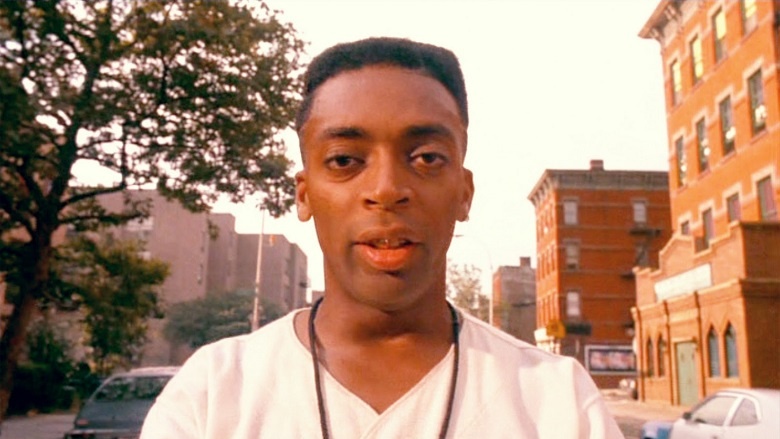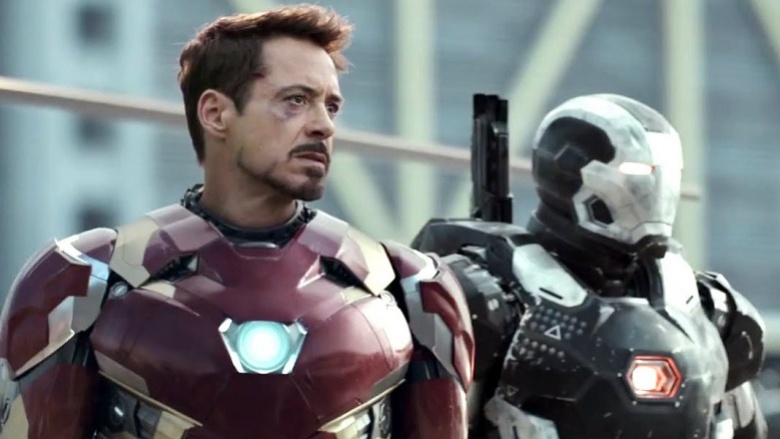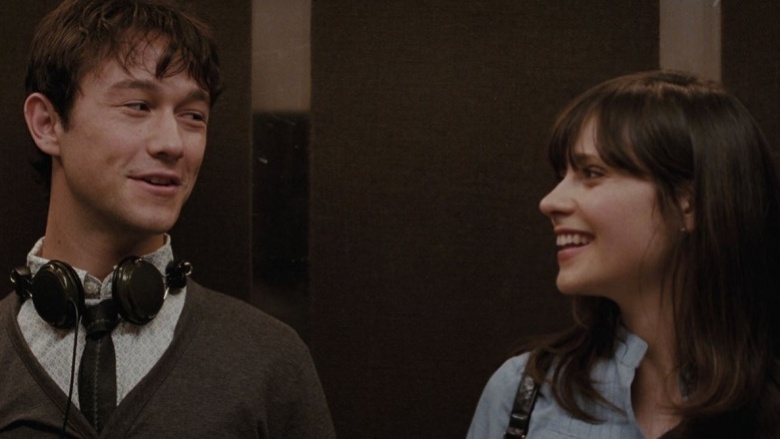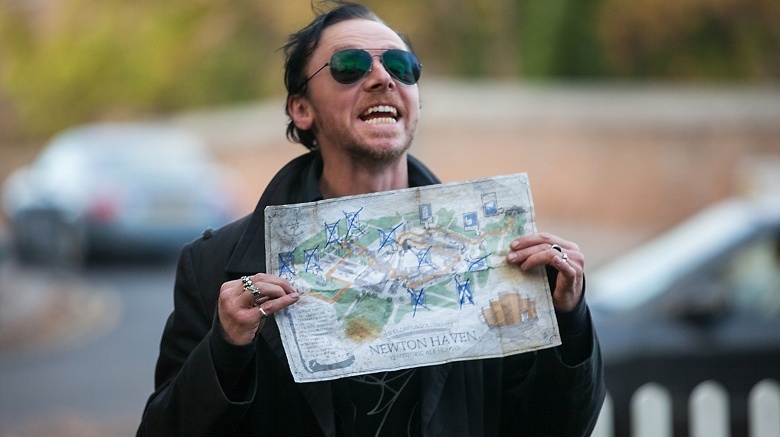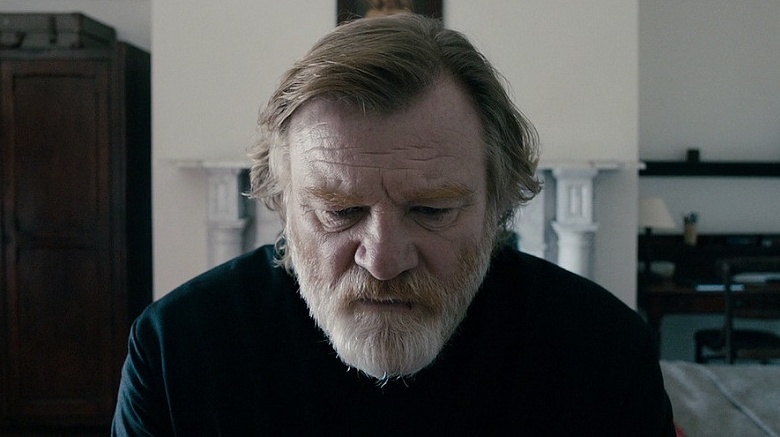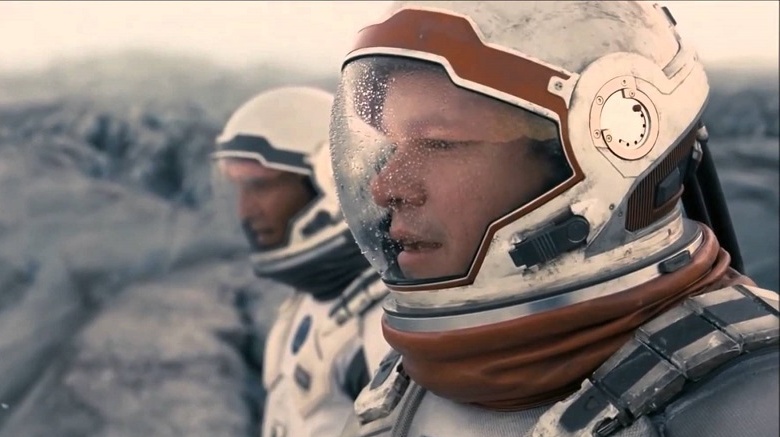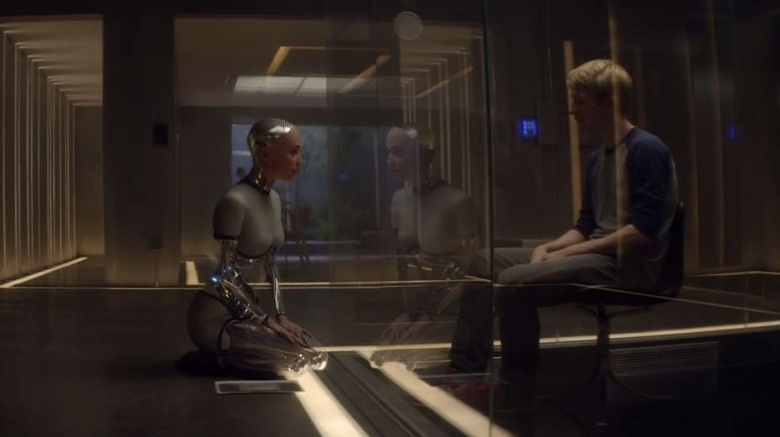Confusing Movie Characters Explained
Some movie characters are incredibly simple and straightforward—you know exactly who they are and what they want. But other characters are a bit more...complicated. The stuff they say and things they do are just kind of strange. Don't freak out, though, because we're about to explore some of the most confusing characters from modern-day cinema, and everything will make sense in a moment.
Mookie from Do the Right Thing (1989)
In a world of police shootings and race riots, Do the Right Thing is incredibly relevant today. Spike Lee's film focuses on a Brooklyn neighborhood where black residents are going head-to-head with the Italian owners of a pizza shop. Tensions eventually boil over, and a protester named Radio Raheem is choked to death by a cop.
That's when Mookie—a delivery guy who works at the pizza shop—jumps into action. Earlier that day, the neighborhood drunk/sage told Mookie to always do the right thing. And now, Mookie decides to throw a garbage can through the pizza shop window, starting a riot that destroys the restaurant. Mookie's actions also sparked one of cinema's biggest head-scratchers. Did he do the right thing?
Well, some argue yes, and some say no. But whatever your take, it was definitely the human thing. Minutes before, Mookie's friend was strangled to death because his music was too loud. And in that moment, years of frustration exploded on the streets. Maybe it wasn't the "right" thing, but as Film Crit Hulk puts it, "It's impossible to do the right thing when no one seems to care when the wrong things are done to you. It's impossible to do the right thing when no one listens."
"People have a breaking point," Spike Lee once said, "and that was Mookie's." So instead of giving Mookie the third degree, maybe we should focus on something else instead. As someone pointed out on Twitter, "Decades later, they're still asking why Mookie smashed the window at Sal's instead of why they killed Radio Raheem."
Ofelia from Pan's Labyrinth (2006)
Set during the Spanish Civil War, Pan's Labyrinth follows a girl named Ofelia who's just moved in with her new stepdad. Unfortunately, he's a sadistic captain who demands absolute obedience or else.
However, things start looking up when she meets an ancient faun. The creature thinks Ofelia is a long-lost princess, but to prove it, she must complete three difficult missions. One involves sneaking into the lair of the child-eating Pale Man. The faun tasks her with finding a special dagger, but he warns her to stay away from the Pale Man's table, which is covered with all kinds of food. Ignoring the faun's warning, Ofelia plucks a grape off the table, thus waking the monster. But what inspired her to suddenly break the rules and jeopardize her chance of becoming a princess?
According to director Guillermo del Toro, Pan's Labyrinth is a movie about "choice and disobedience." It's a story that encourages audiences to question authority. And deep down, Ofelia is a rebel. So when she spies a table full of food, her disobedient instincts kick in. As critic Devin Faraci explains, Ofelia hasn't seen this much food in a long time. At home, war is raging, and even the rich are given ration cards. So naturally, Ofelia wants those grapes. While it seems like a petty gesture, Faraci argues this is the first step to Ofelia defying both the faun and her stepfather.
Ofelia is no longer blindly accepting orders, and when she's told to harm her baby brother, she refuses. As Jim Emerson puts it, "In order to find her true self, [Ofelia] must also find the strength to break the rules imposed by authority."
Daniel Plainview from There Will Be Blood (2007)
In the beginning of There Will Be Blood, Daniel Plainview adopts an orphaned boy named H.W., and for the first half of the film, it seems like they have a caring relationship. But near the end of the movie, the elderly oil tycoon angrily disowns his son. What's going on with Daniel? Despite his professed hatred for humanity, he's a guy who needs family. When H.W. comes along, the boy fills a hole in his life and anchors Daniel to his fleeting humanity.
While some argue Daniel's relationship to H.W. is purely for show, Darren Foley of Must See Films points out key scenes in which Plainview shows genuine feelings for his son. For example, Plainview sheds a tear when he sends H.W. away. And in the dramatic baptism scene, you can feel Daniel's grief, shame, and anger as he admits that he abandoned his boy.
Tragically, though, after H.W. goes deaf, Plainview can no longer communicate with his son. Their relationship starts to crumble, and Daniel latches onto his "long-lost brother," Henry. Henry temporarily fills the void left by H.W., and Daniel opens himself emotionally to this strange man. But when Daniel learns Henry is a liar, he murders the imposter.
The last straw comes when H.W. leaves his father's company to start his own oil business. Feeling betrayed, Daniel cuts off his son for good and soon descends into madness. Without any family, his life has become meaningless. And with nothing to live for, he finally takes revenge on his old enemy, Eli Sunday. Without H.W., it seems that Daniel is "finished."
Tony Stark from the Marvel Cinematic Universe (2008-2016)
When we first met Tony Stark, he was a rule-breaking maverick. Eight years later, he's the poster boy for Big Brother. Even more confusing, didn't he retire in Iron Man 3? What's up with this guy?
To understand Stark, you need to know two things. First, he suffers from PTSD. After flying into the Chitauri wormhole in The Avengers, he started experiencing panic attacks. As a result of his PTSD, Tony is constantly trying to protect himself and his loved ones from harm. That's why he builds so many suits in Iron Man 3. However, at the end of the film, he confronts his demons and destroys his armor...but not because he's quitting. According to Devin Faraci, Tony is "destroying the idea that Iron Man can handle his every fear...He's trying to deal with his trauma as opposed to cocooning himself away from it."
However, Tony's PTSD flares back up in Avengers: Age of Ultron, thanks to a terrifying vision. Worried that danger is coming, Tony creates Ultron to protect the world. Things don't exactly pan out, and that leads us to the second thing you should know about Tony: he's racked with guilt. While Tony is constantly trying to outrun his past, Faraci points out that the Stark legacy is one of death and destruction. Thanks to Tony's weapons, terrorists have unleashed devastation across the planet. And thanks to his narcissism, Ultron destroyed an entire city.
So in Captain America: Civil War, when Tony learns the Avengers were responsible for innocent deaths, he eagerly signs the Sokovia Accords. But while characters like War Machine genuinely believe in government oversight, Tony is just trying to assuage his guilt. Hopefully, Captain America will straighten him out in the next Avengers movie.
Tom Hansen from 500 Days of Summer (2009)
It's safe to say Tom Hansen is one of the most misunderstood characters in cinematic history. That's partly because he's played by the ever-charming Joseph Gordon-Levitt. It's also partly because, as explained on the blog College Crush, "We've all, at some point, been Tom."
Thanks to years of Hollywood romances, audiences are trained to root for the male hero as he pursues "true love." And in 500 Days of Summer, Tom falls head over heels for his new co-worker, the titular Summer. Summer straight up tells Tom she isn't interested in a serious relationship. However, Tom is a romantic who totally misunderstands The Graduate, and he ignores Summer's warnings.
Instead of just being friends, Tom turns Summer into his perfect dream girl. The Summer he sees isn't a real person—she's a fantasy. Tom is chasing someone who doesn't exist because the real Summer doesn't share his wants. As Gordon-Levitt has admitted, his character was "selfish." In Gordon-Levitt's estimation, "[Tom] develops a mildly delusional obsession over a girl onto whom he projects all these fantasies. He thinks she'll give his life meaning because he doesn't care about much else going on in his life...That's not healthy. That's falling in love with the idea of a person, not the actual person."
Omar from Four Lions (2010)
What makes someone strap on a suicide vest? Is it poverty? Is it a fervent belief in a particular religion? That's what we're often told, but in the comedy Four Lions, we're given a glimpse of a few terrorists who don't fit the stereotypical mold.
Set in England, Four Lions follows a band of jihadists who want to bring destruction down on the western world. Unfortunately for them, they're a bunch of bumbling idiots who can't even properly deliver a monologue for their Osama bin Laden-style videos. These are guys who think strapping bombs onto crows sounds like a good idea.
In short, they're idiots, but they're not fundamentalists. Take the film's protagonist, Omar, for example. He's a security guard in a mall, listens to songs like "Dancing in the Moonlight," and absolutely loves The Lion King. And he's not a loner, either. Omar is happily married, with a sweet kid and a nice house. But while he seems like a normal guy, Omar wants to join a terrorist training camp and kill infidels.
So why does he want to blow himself up? Well, Omar is in it for the glory. He's a guy with big ambitions. He wants respect. As Jennifer S. Bryson of the Witherspoon Institute writes, "Omar desperately wants to be looked up to, not least of all by his little son."
On top of that, Omar is an incredibly frustrated individual. He's furious with a society he perceives as corrupt, and while some angry young men—desperate for glory—might join a gang or the military, Omar becomes a terrorist, ready to fight the evil influence of the West. In his mind, it's the closest he'll ever come to being a real-life Rambo.
Gary King from The World's End (2013)
Gary King is a guy who won't stop talking about the glory days of high school. His big goal in life is to finish a pub crawl he started as a teenager, and after rounding up all his old friends, he returns to his hometown for a night of carousing. But Gary quickly learns that the city has been invaded by a robot army from outer space...only he doesn't really care. He's going to finish the pub crawl, even if it brings about the apocalypse.
Gary isn't your typical hero. He's selfish, suicidal, and a liar. But to understand him, you have to realize he's an alcoholic. As A.D. Jameson put it, for Gary, "beer is the world's end." Nothing else in the world matters except for booze. That's why we first meet Gary in an AA meeting where he's reminiscing about his once-and-future pub crawl.
As an alcoholic, King refuses to accept any responsibility for his hurtful actions, and that's why he prefers living in the past. Even as his friends are attacked by robots, he refuses to stop searching for more beer. That is until he meets the leader of the alien invaders, the Network, which offers him a deal he can't turn down. In exchange for his surrender, the Network promises to let Gary's memory live on forever in a robot version of his high school self. Faced with this monumental decision, Gary declines. He's finally ready to let the past go and accept responsibility for his mistakes. According to Film Crit Hulk, this is Gary admitting he's an alcoholic.
However, this decision comes with some disastrous results. The robots abandon Earth, leaving the world an apocalyptic wasteland. Metaphorically, this is Gary sobering up. He's finally moving ahead, but it isn't going to be easy. His decisions have left quite an impact on everyone around him, but according to director Edgar Wright, this is a step in the right direction. It's Gary saying, "Actually, I don't want to be the teenage me. I want to be me." Ugly scars and all.
So the next time we see Gary, he's drinking water and taking care of his new robot friends. While Gary's decisions led to the world's end, they ultimately made him a sober, mature adult. Small price to pay, right?
Father James Lavelle from Calvary (2014)
Father James Lavelle is an honest yet weary pastor with seven days to live. In Calvary's opening, Father James hears the confession of a sex-abuse victim who was molested as a child by a priest. This mysterious parishioner wants revenge, and he plans on murdering an innocent priest to send a message to the world.
That innocent priest is Father James. The killer gives him a week to settle his affairs.
While the would-be assassin is kept offscreen, Father James knows the man's identity. But instead of going to the police, Lavelle honors "the sanctity of the confessional booth." Of course, he has other options. He could run for his life or defend himself, but in the end, he decides to stay in his parish, tend to his spiritual flock, and prepare for his upcoming confrontation with the murderer.
This is especially baffling considering that everyone in town hates his guts. Why? Well, this is Ireland, and people are still hurting from the Church sex scandals. And since they can't punch the Pope, they turn Father James into their whipping boy. So why does he stay? According to actor Brendan Gleeson, Father James wants to "absorb pain...and offset this sense of abandonment that people feel." So he takes their barbs and their blows, and he gives them counsel and solace in return.
Most importantly, he wants to help his would-be killer, and if he can't take away the man's pain or save his soul, Father James is willing to die for the sins of his church. The little Irish town is his crucifix, and he's a burly Christ figure with an Irish brogue.
Dr. Mann from Interstellar (2014)
In Interstellar, planet Earth is dying, so a team of astronauts travels through a wormhole to find habitable planets in another galaxy. Fortunately, they're not the first ones to make the trip. Three previous explorers—Miller, Edmunds, and Mann—all found planets that might substitute for Earth, and they're all waiting for the new astronauts to show up and check everything out.
With a limited amount of fuel, the astronauts can only pick one planet. Under the leadership of pilot-turned-farmer Cooper, the team lands on Dr. Mann's planet. There, they find a slightly jumpy scientist who looks like Matt Damon. Initially, Mann claims his planet is perfect, but before long, he assaults Cooper, tries to blow up the crew, and escapes with their ship. This twist left many moviegoers puzzled. What was Mann's plan, and where was he going?
First off, Mann lied about his planet. It was an icy, barren rock. Second, Mann freaked out. Afraid to die alone, he sent out false signals to lure the fresh batch of astronauts. But what was he planning next? Did he want to return to Earth?
Actually, Mann wanted to take Cooper's ship—which was loaded with fertilized human embryos—and fly to the nearby Edmunds planet, where he would hopefully save mankind. But he didn't want word of his cowardice getting back to Earth, so he attempted to kill his fellow astronauts. Fortunately for humanity, Dr. Mann was a lousy space pilot and an even worse murderer.
Ava from Ex Machina (2015)
Alex Garland's sci-fi masterpiece Ex Machina tells the story of Caleb, a programmer who wins the chance to work with Nathan, a billionaire genius who's created an artificial intelligence named Ava.
Nathan wants Caleb to run a series of Turing tests to see if Ava can pass for a human. After a few brief encounters, Caleb begins to fall for Ava...and he learns she isn't the first AI Nathan has built. The billionaire has a bad habit of creating and imprisoning sex slaves. Now determined to help Ava, Caleb frees her—but then Ava locks him in a room and abandons him to die.
What just happened?
Well, it's important to remember that Ava is a thinking, feeling consciousness who has been locked up and abused by a psychotic scientist. And while Caleb agrees to help her, he only does so after choosing to view her as human. But regardless of what Caleb decides, Ava doesn't need his love or approval. She also doesn't want to escape from Nathan only to wind up belonging to Caleb.
If anything, Caleb would make Ava's life more difficult. While she wants to blend into society, Caleb would always know her secret. She would always be beholden to him. Film Crit Hulk argues that Ava decides to "hurt someone she barely knows in the name of being free." After all, she's only interacted with Caleb a few times, and he views her simply as an object that needs to be rescued. What does she owe him? As Darren Mooney points out, while Caleb isn't abusing women like Nathan, he's still a monster in his own way. In other words, Ava is defending herself from the men who want to possess her, and now, she can start over in her brand new skin.

